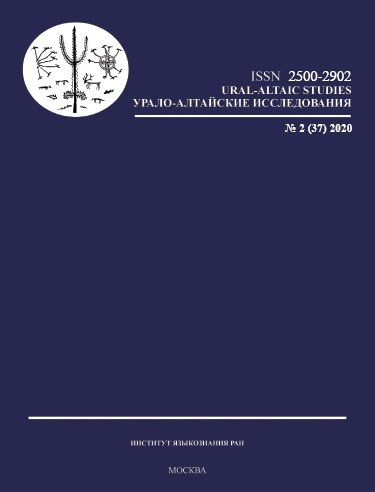Август Альквист: трудности этнолингвистического перехода
August Ahlqvist: difficulties of ethnolinguistic transition
Author(s): Aleksei Ye. ZagrebinSubject(s): Cultural history, Customs / Folklore, Historical Linguistics, Comparative Linguistics, Finno-Ugrian studies, 19th Century
Published by: Институт языкознания Российской академии наук
Keywords: A. E. Ahlqvist; folklore; Finnish language; expedition; Finno-Ugric people;
Summary/Abstract: August Engelbrecht Ahlqvist (1826―1889) was a key figure in the Finnish, Finno-Ugric and Ural-Altaic linguistics of the second half of the 19th century who remained in the shadow of other well-known researchers for a long time. A. Ahlqvist formed as a scholar, political figure and writer under the influence of the Finnish national awakening movement. J. V. Snellman, the founder of the Finnish philosophy school, E. Lönnroth, the compiler of the epic poem “Kalevala”, and the romantic poet J. L. Runeberg were among his mentors. A. Ahlqvist spent his first expeditions in 1845―1855 taking down runic poems, lyrical songs, collecting speech samples, and making ethnographic observations among the Finns, Karelians, Vod's, Estonians and Veps. For the next three years he studied the languages and lifestyles of the Chuvash, Mordvins, Mari, Mansi, and Khants in the Middle Volga region and Western Siberia. His advanced ideas and field work experience allowed him to become a Professor of the Finnish language and literature at the Imperial Alexander University in Helsingfors in 1863. His book on “cultural words” in the Western Finnish languages brought linguistics and ethnography closer together. A. Ahlqvist was elected a corresponding member of the Imperial Saint-Petersburg Academy of Sciences in recognition of his achievements in the study of the Finno-Ugric peoples. Continuing his field research in 1877 and 1880, he visited the Khants and Mansi again, publishing his ethnographic notes in a separate volume. A. Ahlqvist founded the Finno-Ugric Society together with like-minded O. Donner and J. R. Aspelin in 1883, and the following year he was elected the Rector of the University in Helsingfors. A. Ahlqvist linked the past and future of the Finno-Ugric studies; he became one of the Finnish literary language creators. No less significant are A. Ahlqvist’s ethnographic observations, which contributed to establishing Finno-Ugric ethnography as an academic discipline.
Journal: Урало-алтайские исследования
- Issue Year: 2020
- Issue No: 02 (37)
- Page Range: 114-123
- Page Count: 10
- Language: Russian

